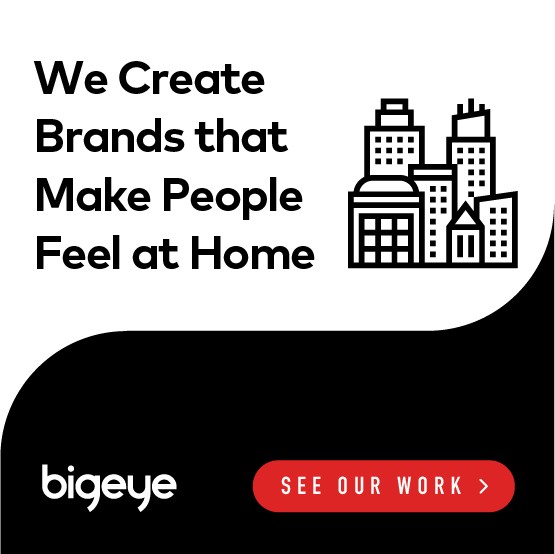When it comes hotel digital marketing during COVID-19, here are some tips on rethinking messaging, audience targeting, and marketing platforms.
Rosie Sparks of Skift may have had one of the best introductory takes for tourism digital marketing during the coronavirus outbreak. To paraphrase, she said that hospitality marketers will have to walk a fine line to develop hotel and resort marketing plans during the crisis. Naturally, potential guests have grown increasingly and understandably cautious about leaving their homes for non-necessary travel. On the other hand, some relatively low-risk marketing tactics could attract the revunue that hotels and other travel businesses need to stave off disaster.
So, what are low-risk digital marketing tactics? Skift mostly focused upon marketing isolated or outbreak-free destinations to help allay tourists fears about traveling during a pandemic. For instance, they published examples of a social and display advertising strategy that consisted of showing idyllic pictures and videos of fairly isolated places that hadn’t been touched by the coronavirus outbreak. These included African savannas, smaller European cities, and remote jungles. Other marketers have also highlighted the ideas of staycations that can give travelers a way to give into their understandable urge to simply get away from it all.
Is promoting virus-free staycations a viable digital marketing tactic for hotel marketing?
The publication noted that government and health organizations from all over the world have urged people to stay home during the outbreak. Right now, they admitted that promoting any tourism at all can damage brands. While some destinations have enjoyed a certain amount of success with this tactic, it’s risky because it’s controversial and also, won’t work for everybody.
For instance, residents of some of these mostly virus-free places have protested against attracting too many out-of-towners to their location for fear they may bring the disease with them. People who agree that it’s best to shelter in place as much as possible may also resent this kind of messaging during a crisis, even if they don’t personally have anything to lose. Most of all, not every hospitality marketer has the luxury to promise a place to escape that’s far from the pandemic.
Suggestions for a better digital advertising strategy for the pandemic
So how can resort and hotel marketing companies best use their precious marketing budgets productively during the coronavirus outbreak? Mostly, you have to find ways to adjust your audience targeting for the times. Because you’ve changed your audience, you should also recognize their needs and concerns within your messaging. To understand how to proceed, dig deeper into some examples.
Rethink your display advertising strategy budget
You may have to work with a lean marketing budget while your business slumps. You can take heart from knowing that your competitors also have to trim expenses, so you may have opportunities to enjoy some bargain placements from publishers, search, and social platforms.
For example, Skift noted that Google’s typically robust travel search has almost become unrecognizable because of the lack of ads. Once you narrow down your message and target audience, you should have plenty of opportunities to test your marketing for much lower rates than you paid a few months ago.
Uncover low-hanging fruit to target
Figure out which people still might visit your business. Even though most people have chosen to stay chose to home, some hotels have managed to keep a steady flow of bookings with visitors like these:
- According to USA Today, thousands of hotels have signed up with an organization called Hospitality for Hope. This matches hotels with agencies in need of lodging. An obvious example of guests this can attract would include healthcare workers who have ventured into cities to help with coronavirus hotspots.
- Similarly, hotels have worked with hospitals, city or county governments, and individuals to help house medical workers, loved ones of patients in hospitals, or even people who don’t need medical care but still need a comfortable place to self-quarantine away from family. For instance, many doctors and nurses have chosen to isolate themselves in hotel rooms for the durations to reduce the risk of infecting their families.
- Besides essential businesspeople who still need to travel for important work, local remote workers have checked into hotels as alternative workspaces. For instance, a parent with a house full of kids may need a quiet place to attend to a day full of video conferencing meetings. With typical work-sharing venues closed down, a hotel can typically provide the amenities these employees need.
- The idea of offering staycations may still work, but instead of trying to attract international travelers to exotic destinations, any city or suburban motel could offer staycations to people who just want to leave home but not travel very far. Hotels and resorts can offer room service, in-room entertainment, and other amenities to help attract guests who live nearby but still want to feel like they’re getting away from it all. Some hotels have worked with local restaurants to promote gourmet weekends with a variety of meals that get delivered right to the front door.
Naturally, once you uncover an existing demand, you may want to tailor packages that will appeal to these people. Whslasile most marketers caution against slashing rates too low to attract guests, you might consider ways you can add value to your packages without reducing revenues too much. Some ideas that other hotels have promoted include discounts for long-term stays, packages that include room service and other upgraded amenities, and of course, relaxed cancellation policies.
Choosing tourism digital marketing platforms
Naturally, you should maintain your presence on any robust social sites you already inhabit. Some content ideas might include:
- Use graphics and videos to demonstrate the extra steps you have taken to protect the health of your guests and employees during the outbreak. For instance, you might even produce a video of your cleaning staff working to sanitize a room for new guests. If you do have rooms for people who need to self-quarantine, you might demonstrate that you have established this block of rooms on a different floor or wing than the rooms for other guests.
- Describe the packages and offers you have developed to help attract your new target markets. Let people know about your long-term stay rates or staycation amenities. If you’re close to a local hospital, you might consider offering transportation or free video calling services as part of the deal.
- For something likely to appeal to the homebound masses, you could have your staff create content that highlights their specialties. For instance, your chef could do cooking demos, your spa employees might demonstrate relaxation techniques, and your cleaning crew could even demonstrate the best way to sanitize surfaces.
- If possible, you should consider including all sorts of hotel employees in your ads. You can let the public see the faces behind your hotel and remind potential guests that their stay at your venue helps keep these poeple employed.
You might also consider targeting some publishers that already attract your potential market. Consider medical publications to appeal to healthcare workers, business publications to find employees who need workspaces, and even local food and travel blogs to find families, couples, and individuals who would splurge on a staycation. You might assume that some of these publications have also suffered revenue drops, so they may offer lower rates for premium spots.
Craft your messaging carefully
Right now, travellers have grown increasingly and understandably cautious. You certainly want to reassure your guests that you can offer them a safe place to stay. You can also let them know that you’ve made your booking and cancelation policies more flexible to accomodate their current needs.
Beyond that, you may soften up your call to action to help entice hesitant bookers. For instance, you might formerly asked ad viewers to “Book Now.” These days, it’s probably best to lighten up with something like “Learn More.”
It’s also time to take a page from the hotels that have pushed their remote destinations as an alternative place to stay during the outbreak. Formerly, your website and ads may have featured your bustling lobby or crowded restaurant. Today, people want to avoid the sorts of crowds that might have attracted them before. You might want to replace those images with scenes from quiet parks, private rooms, and scenic vistas.
Can hotel and resort marketing still thrive during the coronavirus outbreak?
Nobody doubts that most hospitality venues have struggled during the current crisis. As marketers, you probably have to make due with a leaner budget. At the same time, your failure to market at all won’t improve the situation. You can make the best use of the resources that you have by uncovering the most likely demand, utilizing your resources, finding discounted advertising rates, and of course, providing your audience with the right messaging at the right time.
In the long run, you will discover some winning strategies that will help you maintain business and emerge stronger once the worst of the crisis has passed. You might even decide to retain some of these effective programs because they will also work during normal times, but you just never would have thought to add them otherwise.

